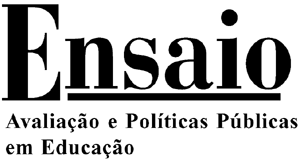The Constitution of the Federative Republic of Brazil, promulgated in 1988, establishes as one of the Republic's fundamental goals to build a free, fair and sympathetic society, that promotes everybody's well-being, without prejudice or discrimination. In terms of educational policy, this longing is reflected when, on the National Curricular Parameters (PCN), citizenship is elected as the "vertebral axis of school education" (PARÂMETROS..., 2000, p. 25). In this sense, ethic is elected as one of the so called transversal themes in basic education. Moral development can be seen as one of the building blocks to implement an inclusive education, that truly promotes the goals already mentioned, since it enables the perception and experience of the multidimensional characteristics that education ideally must have. So the authors begin with an investigation of the way an education in values, as a tool to build an ethical society, is really in course in school environment. This investigation intends to offer clues to create a curriculum which leads to the citizenship development, through an integration of both, moral and academic points of view. The authors believe that the theme must lead to the presentation of a work proposal to be developed on the specific issue of an education in values, duly justified and reasoned.
Curriculum; Education; School; Values; inclusion



